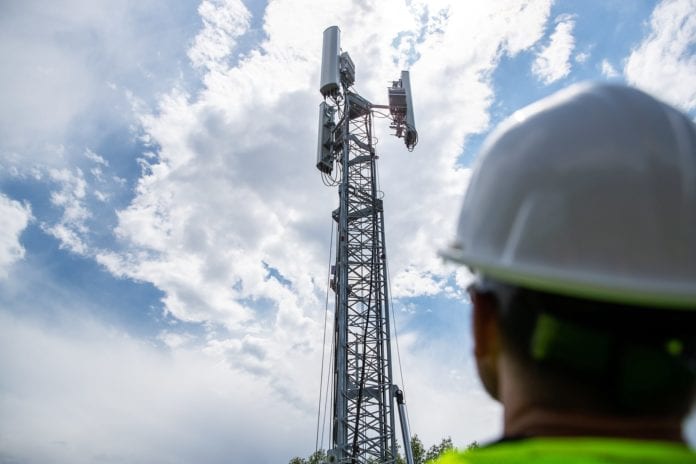Dish Networks has signed its first public infrastructure deal for its future 5G network, putting in place a multi-year anchor tenant agreement with Crown Castle to lease space on up to 20,000 communications towers across the U.S.
The agreement also covers fiber backhaul and the option of using Crown Castle for pre-construction services.
In the announcements, Dish said that its vendor announcements across infrastructure, software, 5G radios and other pieces of the network “provide a clear path toward Dish’s rollout of a nationwide 5G network.”
Dave Mayo, Dish’ EVP of network development, called the announcement “an important milestone for Dish as we set our sights on building a first of its kind 5G network in the U.S.” He added, “Crown Castle brings the experience and broad tower portfolio we need, from major markets to more rural areas, to help DISH bring to life the promise of our standalone, nationwide 5G network.”
Crown Castle CEO Jay Brown described the deal as a “long-term strategic relationship and said that Dish’s 5G network builout “marks an important development for the industry, and we believe our ability to offer towers, small cells and fiber solutions at scale provides us the best opportunity to deliver value as we support their wireless infrastructure needs.”
Dish’s timeline on its network build has been questioned of late, as the company indicated that its anticipated capital expenditures would be spread over a seven-year period instead of three years, and at least one analyst looking for reassurance that Dish can actually deliver 5G in accordance with Federal Communications Commission timelines that will otherwise see Dish face automatic loss of its spectrum licenses.
Dish has a seven-year wholesale agreement under which its customers have access to T-Mobile US’ network, and Dish has until mid-2023 to meet build out requirements for its AWS and 700 MHz spectrum. It is required to build out 5G.
More specifically, for each of Dish’s spectrum licenses in the AWS-4 (2000-2020 MHz / 2180-2200 MHz), lower 700 MHz E block and AWS H block (1915-1920 MHz/1995-2000 MHz) bands, Dish has until June 14, 2023 to provide 5G service. That service has to cover at least 70% of the population in each license area for the AWS-4 and E block licenses, and at least 75% of the population in the AWS-H block license areas. However, there’s a caveat: If Dish builds out 5G coverage in those bands that reaches at least 50% of the entire U.S. population by that June 2023 date, then it can have another two years, until June 14, 2025, to get to the 70% or 75% mark in each of the specific license areas. For Dish’s 600 MHz licenses, acquired in the broadcast incentive auction, the 75% build-out requirements were accelerated from June 2029 to June 2025, bringing them in line with the rest of the spectrum licenses at issue.
Dish Chairman Charlie Ergen said that the company will have “some preliminary, small markets in the first quarter” of 2021, but that it will be “the third quarter before we have a major market up and running the world can touch and feel a little bit to see what we’re doing. We’re running pretty fast internally. It’s not visible obviously to all our investors or the street. We’re focused on just keep getting the job done. There’s not great forums for us to communicate in the world because of COVID because for us to show you what we’re doing, you’ve really got to see it.”

